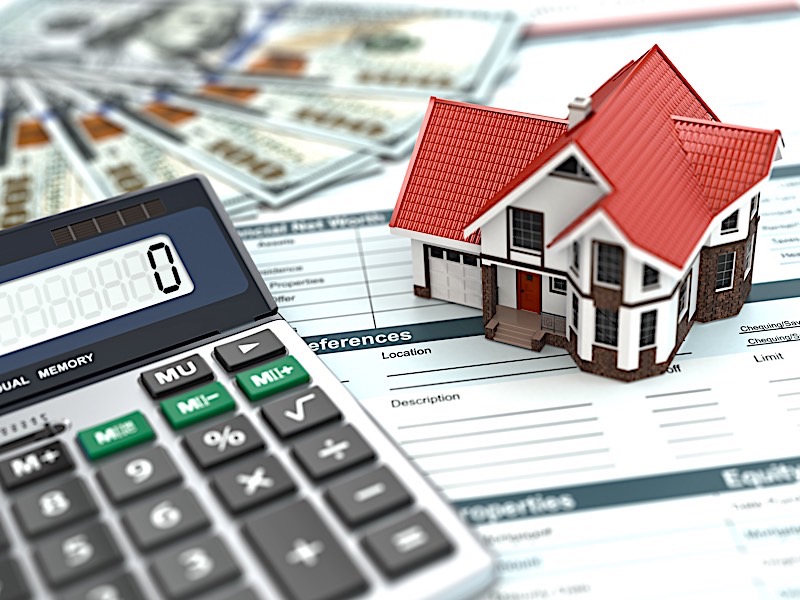Key Takeaways
- How much mortgage can I qualify for? The answer lies in your own financial profile.
- Understand the difference between mortgage pre-approval vs pre-qualification.
- Follow several simple steps to ensure you are a well-qualified buyer when you are ready to make an offer.
When shopping for a new home, there’s one question most people tend to ask themselves: How much mortgage can I qualify for? The question is rather simple, but requires an acute attention to detail and a mind for due diligence. Looking for a loan can certainly feel overwhelming, but familiarizing yourself with the mortgage loan approval process and our tips for becoming a well-qualified applicant can help you realize your dream home before you know it.
How Much House Can I Afford?
“How much mortgage can I qualify for” and “how much house can I afford” are vastly different questions, which is an important distinction to make. One suggests how much money you’ll be able to acquire, while the other hints at how much you should spend without stretching yourself too thin.
You should consider other factors, in addition to the amount you qualify for, to decide what realistically fits your budget. When deciding how much house you can afford, it is important to keep three factors in mind:
-
Gross Monthly Income: Gross monthly income includes wages, investments/dividends, among other sources of income. Be thorough when coming up with this number to get the most accurate understanding of what mortgage will best fit your budget.
-
New Home Details: What is your down payment? How long is the loan term and what is your interest rate? What about things like yearly real estate taxes and homeowners insurance? These are all factors the will help you get a clear idea of the real monthly cost of your mortgage.
-
Monthly Expenses: Be exhaustive when coming up with your list of monthly expenses. If you merely ask yourself “How much mortgage can I qualify for based on income,” you are missing the other half of your financial picture: expenses. Monthly expenses include things like your car payment and insurance, credit card and student debt payments, and your monthly savings.
[ Need money to invest in real estate? Use this 7-Figure Fundraising Kit to get the capital you need ]

Mortgage Qualification Calculator
There are tons of mortgage qualification estimator resources you can use to calculate how much a bank may be willing to lend you. It is worth noting, however, that each calculator isn’t going to provide you with the exact number you are looking for, but rather a rough approximation of what you can expect to afford. NerdWallet’s mortgage qualification calculator is a great place to start.
Mortgage Pre-Approval Vs Pre-Qualification
People often use the terms pre-approval and pre-qualification interchangeably, but the truth remains: they mean two very different things.
You will likely want to start with mortgage pre-qualification. Getting pre-qualified is generally a quick, simple and free process that does not require a credit check. You simply provide your lender an overview of your finances, and they give you an idea of how much mortgage you might qualify for.
Pre-qualification is an estimation only, not a guarantee. Pre-approval, however, is a much more in-depth look at your finances and carries significantly more weight when you go to put an offer in on a home.
In getting pre-approved, you will receive a commitment in writing from your lender for a conditionally guaranteed loan amount. To get pre-approved, you will have to complete a mortgage application (and pay an application fee), and your lender will run a full credit check.
Getting pre-approved allows you to move more quickly and be a better qualified buyer, giving you a distinct advantage when buying a home. Sellers will take pre approval more seriously, as they know you are one step closer to obtaining the actual mortgage, which can make the difference between your offer being accepted, or not.
The other advantage of pre-approval is that you know exactly how much you can borrow before you start shopping. When you know your budget, you can avoid the mistake of viewing homes that are even slightly out of your price range. Likewise, you can avoid the heartache of finding the perfect home within your budget, yet losing it to a more prepared buyer.
Mortgage Qualification Tips To Help Get Your Loan Approved
-
Stay on top of your credit score: Your credit score affects whether you are approved for a loan, how much you are approved for, and your loan interest rate. Make payments on time, keep available credit high, and make sure to check for errors and get them corrected in order to keep your credit score up.
-
Save your cash: The bigger your down payment, the less you need to borrow. Therefore, if you are considering purchasing a home, it’s a good idea to save as much cash as you can. A hefty down payment can keep your monthly mortgage payment low, and can reduce the amount you pay over the life of your loan.
-
Keep your job: Even after you are pre-approved, wait to make any employment changes until after your loan goes through. Lenders want to see stability in your work history. Quitting your job before you actually get your mortgage can raise serious red flags.
-
Pay down and avoid new debt: One of the factors in evaluating your qualification for a mortgage loan is your debt-to-income ratio. Paying down (or better yet, paying off) credit cards will improve this number, and your credit score. Paying down even a little bit of debt can impact your approval eligibility. Similarly, avoid any large purchases on your credit cards until after you have received your loan.
-
Ask for help: The mortgage and lending process can be daunting and fraught with unknowns. Don’t be afraid to ask the experts for help. Ask your bank for their advice before and during the process.
-
Get pre-approved for a mortgage: Buying a house can be stressful, but getting pre-approved can reduce your anxiety and increase your chances of success when making offers. Once you are pre-approved, you are armed with real knowledge of what you can afford and you are closer to making your dream home a reality.
-
Know what you can afford: So what can you afford? Remember, just because you are approved for a certain amount does not necessarily mean it falls within your budget. Keep in mind other expenses not factored into the pre-approval amount like fuel, groceries, and entertainment.

When it comes to buying a home, getting pre-approved for a mortgage loan that fits within your budget is a smart and responsible step. You’ll streamline the homebuying process, be empowered with actual numbers to help guide your search, and be better prepared when the time comes to make an offer. Ultimately, following these steps can reduce your stress and make sure you get into a new home that you love sooner rather than later.
How much mortgage can I qualify for? Drop a comment below and let us know if this article got you any closer to answering this important question.
